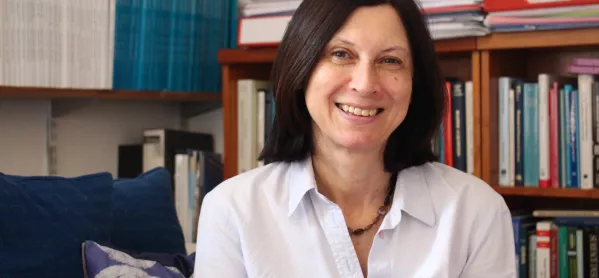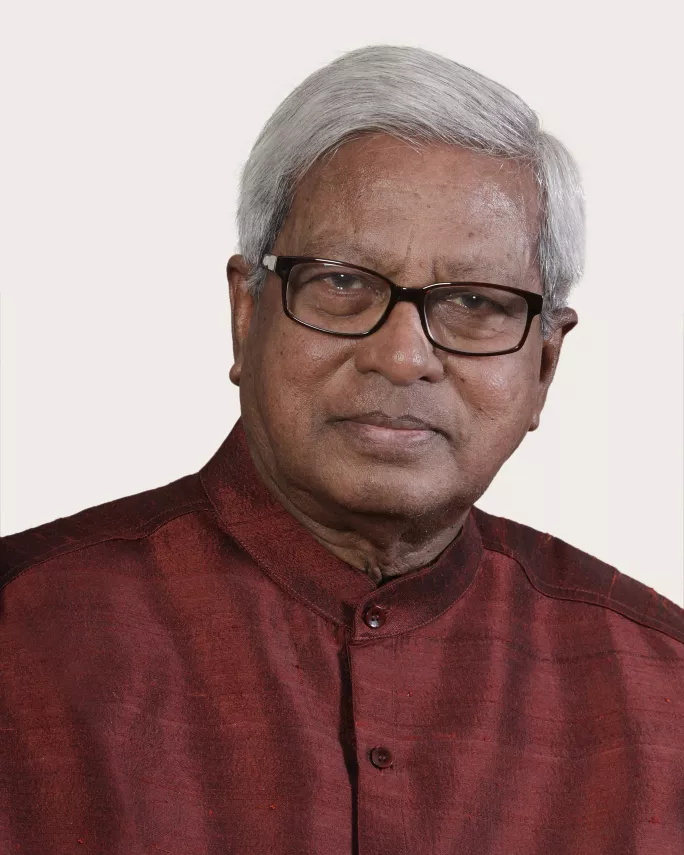
- Home
- Stars of education win £3m prize
Stars of education win £3m prize

A neuroscientist, renowned for her work on dyslexia, and the chair of a development organisation have each been awarded a £3.1 million ($3.9 million) research prize to fund their ongoing work in education.
Usha Goswami, professor of developmental cognitive neuroscience at the University of Cambridge, and founder of the world’s first Centre for Neuroscience in Education, has been awarded the Yidan Prize for education research.
Background: Chinese billionaire launches world’s biggest education prize
Past winners: Meet the $4m academic who revolutionised education research
Professor Goswami: How nursery rhymes can tackle dyslexia
And the Yidan Prize for education development has gone to Sir Fazle Hasan Abed, founder and chair emeritus of Bangladesh-based BRAC, an non-governmental organisation that operates across 11 countries in Asia and Africa, with the aim of alleviating poverty through education.
Each year, the Yidan Prize is awarded to two individuals or organisations whose work has had a big impact in education research and development.
Professor Goswami (pictured), whose research investigates the root causes of oral language impairments, said it was a “real honour” to receive the prize.
Tackling dyslexia
“I do feel highly privileged to have been given the prize. I’ve been working on children’s reading development ever since I trained as a primary school teacher,” she said.
She will use the money - half of which is a cash prize and half which is a project fund - to further develop her research into childhood language acquisition and oral language impairment.
In Professor Goswami’s research, she has posited that we learn to speak through the rhythmic patterns of human speech, which are amplified in infant-directed language, or “baby talk”.
Children with dyslexia and other forms of language development disorders find it more difficult to understand these rhythmic patterns, she said.
“What I’ve shown is that the brains of children with dyslexia are poor at coding one level of that rhythmic hierarchy. And I’ve been doing work with children with oral language impairment, and finding they also have problems with speech rhythm, if you measure that behaviourally,” she added.
“The really exciting thing about this award is that I’ll be able to extend my framework about rhythmic language processing and why it’s so important to individual differences.”
Her two areas of research - into dyslexia and how the infant brain responds to nursery rhyme patterns - will benefit from the Yidan Prize funding. Professor Goswami says it is not only neuroimaging which forms an expensive part of her work - each session costs £900 - but also the personnel needed for work with young, pre-verbal children.
She hopes to work on amplifying sounds and rhythms for dyslexic children so that they are very exaggerated, drawing on the model of cochlear implants for deaf people.
Sir Fazle said: “I am delighted and honoured to be selected. The prize money will go to programmes in Africa, including our early childhood programmes, which will be expanded.”

Sir Fazle Hasan Abed: winner of the Yidan Prize for education development
He said BRAC’s early childhood education programmes are highly important in giving young people a strong emotional and intellectual basis for later learning.
Focus on early education
“Early education is an important input - children develop social and emotional intelligence that carries them through secondary and tertiary education. It provides a more meaningful future for our citizens,” Sir Fazle added.
The Yidan Prize was launched in 2016 by Charles Chen Yidan, a tech billionaire who co-founded Tencent, a Chinese social networking and internet service website.
Entries this year came from a wide range of countries. The list of nominated projects this year spanned 129 countries or regions, including China, the US, India, the United Kingdom, Germany, Australia, Brazil and many others.
The two laureates will travel to Hong Kong to receive their awards at the Yidan Prize Award Presentation Ceremony in December.
Andreas Schleicher, education director at the Organisation for Economic Cooperation and Development, was on the judging panel for the prize for research. He said: “Professor Goswami is a highly respected scholar who has been visionary in her approach and impactful in the field.
“Thanks to her work, educators can now understand how children’s phonological awareness underpins reading development and dyslexia across languages - at the cognitive, the behavioural, the sensorial and the neural levels.”
Dr Chen Yidan, founder of the Yidan Prize, said: “I congratulate Professor Usha Goswami and Sir Fazle Hasan Abed on their outstanding achievements and commitment to improving education.
“Knowledge attainment is an area that transcends racial, religious, economic and national boundaries, affecting everything from human health and the environment to wellbeing and personal fulfilment.”
Register with Tes and you can read five free articles every month, plus you'll have access to our range of award-winning newsletters.
Keep reading for just £4.90 per month
You've reached your limit of free articles this month. Subscribe for £4.90 per month for three months and get:
- Unlimited access to all Tes magazine content
- Exclusive subscriber-only stories
- Award-winning email newsletters
You've reached your limit of free articles this month. Subscribe for £4.90 per month for three months and get:
- Unlimited access to all Tes magazine content
- Exclusive subscriber-only stories
- Award-winning email newsletters



